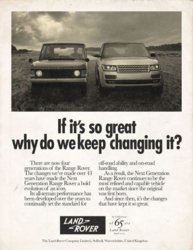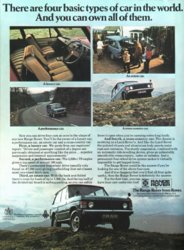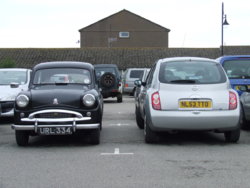swee'pea99
Legendary Member
Bizarre as it may sound, I think Drago might actually be onto something.
According to this fascinating FT article, although electric cars are more environmentally sound than petrol - taking the broadest possible lifetime view, which takes into account their higher manufacturing carbon footprint - the trend toward larger. more luxurious vehicles, with greater range, is limiting their benefits. It's got to the point where efficient small petrol cars actually have a lower lifetime carbon footprint than the latest Teslas.
Nico Meilhan, a Paris-based car analyst and energy expert at Frost & Sullivan, says regulators should not encourage this race to sell electric vehicles with bigger batteries. “It’s a race, but it’s a very stupid race. It’s not towards a good solution,” he says. “If you switch from oil to cobalt and lithium, you have not addressed any problem, you have just switched your problem.”
Instead, he says regulators should take weight into account by taxing heavier vehicles and creating incentives for smaller models in both electric and traditional vehicles. Mr Meilhan points out that petrol-engine cars weighing just 500kg — such as the French Ligier microcar or some popular “kei cars” in Japan — emit less lifecycle emissions than a mid-sized electric vehicle even when driven in France, where carbon-free nuclear power generates three-quarters of electricity.
“If we really cared about CO2,” he adds, “we’d reduce car size and weight.”
According to this fascinating FT article, although electric cars are more environmentally sound than petrol - taking the broadest possible lifetime view, which takes into account their higher manufacturing carbon footprint - the trend toward larger. more luxurious vehicles, with greater range, is limiting their benefits. It's got to the point where efficient small petrol cars actually have a lower lifetime carbon footprint than the latest Teslas.
Nico Meilhan, a Paris-based car analyst and energy expert at Frost & Sullivan, says regulators should not encourage this race to sell electric vehicles with bigger batteries. “It’s a race, but it’s a very stupid race. It’s not towards a good solution,” he says. “If you switch from oil to cobalt and lithium, you have not addressed any problem, you have just switched your problem.”
Instead, he says regulators should take weight into account by taxing heavier vehicles and creating incentives for smaller models in both electric and traditional vehicles. Mr Meilhan points out that petrol-engine cars weighing just 500kg — such as the French Ligier microcar or some popular “kei cars” in Japan — emit less lifecycle emissions than a mid-sized electric vehicle even when driven in France, where carbon-free nuclear power generates three-quarters of electricity.
“If we really cared about CO2,” he adds, “we’d reduce car size and weight.”






